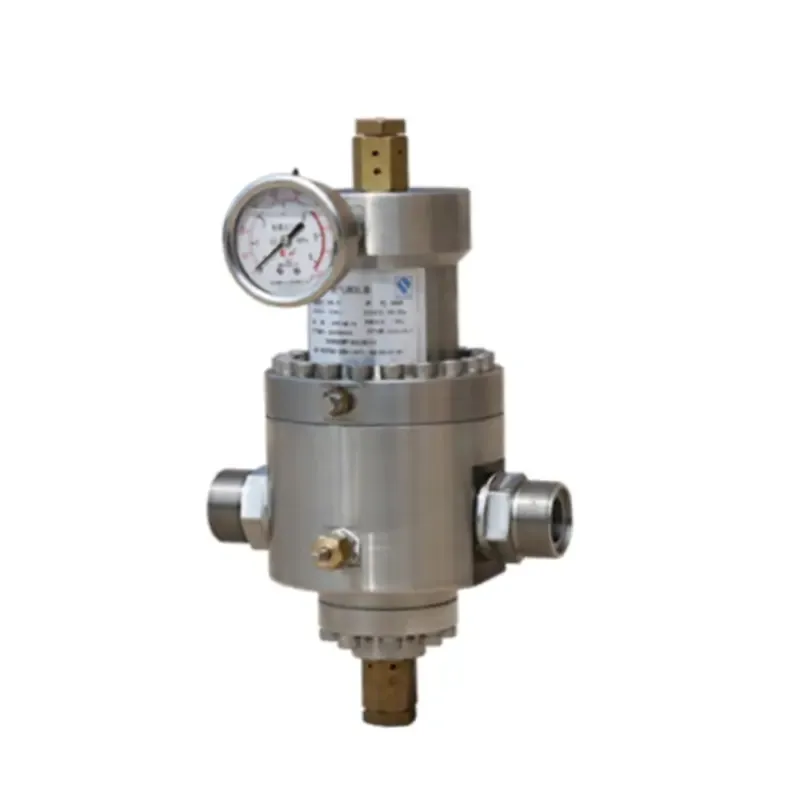
8 月 . 12, 2024 19:28
Back to list
Understanding the Functionality and Importance of Pressure Regulating Devices in Various Applications
Understanding Pressure Regulating Devices A Key Component in Fluid Systems
Pressure regulating devices are vital components in a myriad of engineering and industrial applications. These devices are engineered to maintain a consistent pressure within a system, ensuring safety and efficiency across various processes. From household gas supply systems to complex industrial applications, pressure regulation is crucial for optimal functionality.
The Function of Pressure Regulating Devices
The primary function of a pressure regulating device is to control the pressure of fluids, whether gases or liquids, within a piping system. By automatically adjusting the output pressure in response to fluctuations in inlet pressure, these devices prevent overpressure situations that could lead to equipment failure, leaks, or even catastrophic incidents.
Pressure regulation is particularly crucial in systems where varying demands may cause pressure levels to fluctuate. For instance, in a natural gas distribution system, demand can vary significantly throughout the day. A pressure regulator ensures that consumers receive a consistent and safe pressure, regardless of these fluctuations.
Types of Pressure Regulating Devices
There are several types of pressure regulating devices, each designed to meet specific requirements depending on the application. The most common types include
1. Spring-Loaded Regulators These rely on a spring mechanism to maintain a set pressure. As the downstream pressure increases, the spring compresses to reduce flow, and as the pressure decreases, the spring expands to allow more flow.
2. Pilot-Operated Regulators These are more complex and offer greater accuracy and stability. They use a small pilot valve to control a larger main valve. The pilot senses the downstream pressure and adjusts the main valve accordingly, providing excellent flow control even under varying flow conditions.
pressure regulating device

3. Electronic Regulators With advancements in technology, electronic pressure regulators have come into play. These devices utilize sensors and actuators to monitor and adjust pressure with high precision, making them suitable for sensitive applications in pharmaceuticals, aerospace, and other industries requiring strict adherence to pressure specifications.
Applications of Pressure Regulating Devices
The applications of pressure regulating devices span across multiple sectors. In the oil and gas industry, they are essential for managing the pressure within pipelines to prevent ruptures and leaks. In the water supply sector, pressure regulation ensures that water is delivered at safe levels to consumers, preventing damage to plumbing systems.
Moreover, in HVAC systems, pressure regulators maintain the correct air pressure to support efficient heating and cooling. In pharmaceuticals, precise pressure control is vital for maintaining the integrity of products and ensuring compliance with regulatory standards.
Importance of Proper Maintenance
While pressure regulating devices are generally reliable, regular maintenance is essential to ensure their optimal performance and longevity. Blockages, wear and tear, and environmental factors can impact their functionality. Implementing routine inspection and maintenance schedules can help detect potential issues early and prevent costly downtime.
Conclusion
In summary, pressure regulating devices play an indispensable role in maintaining the stability and safety of fluid systems across various industries. Their ability to manage pressure fluctuations not only enhances the efficiency of systems but also protects equipment and personnel from potential hazards. As technology advances further, the capabilities of these devices will continue to evolve, making them even more integral to modern engineering practices. Understanding their functionality, types, applications, and maintenance needs is essential for anyone involved in designing, operating, or maintaining fluid systems.
Latest news
-
Unlocking The Quality Gas Pressure ReducersNewsNov.01,2024
-
The Role of Gas Pressure Reducing StationsNewsNov.01,2024
-
The Importance and Functionality of Safety Relief ValvesNewsNov.01,2024
-
The Essential Role of Safety Valves in Natural Gas ApplicationsNewsNov.01,2024
-
The Essential Role of Gas Pressure RegulatorsNewsNov.01,2024
-
Enhance Your Premium Gas FiltersNewsNov.01,2024

